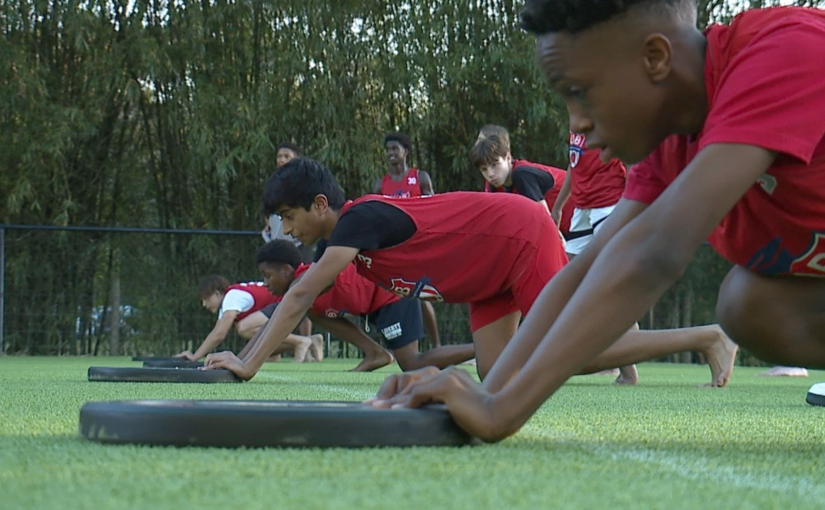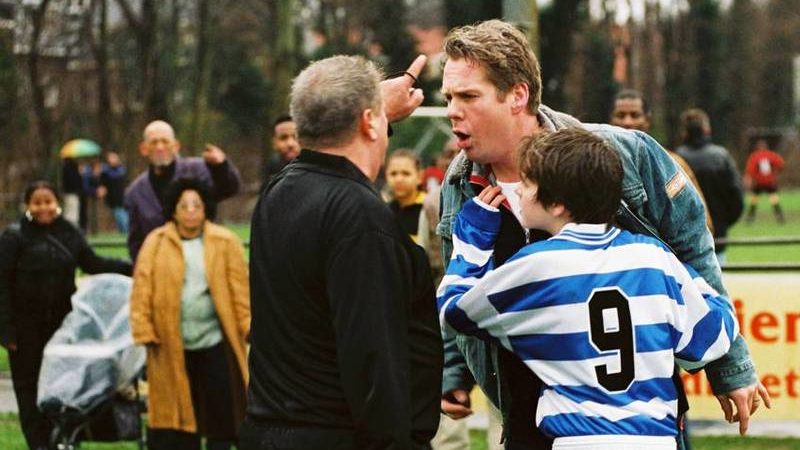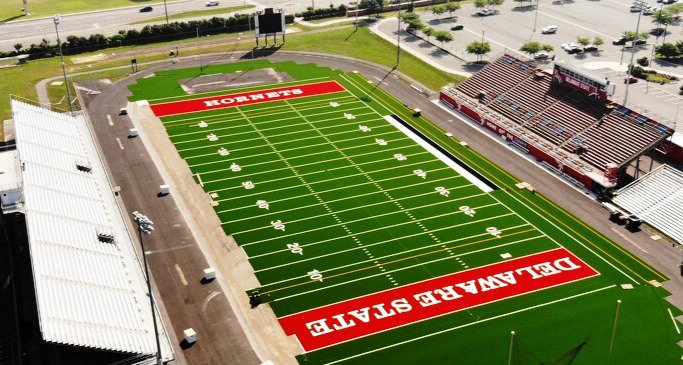Keeping the ‘stud’ in student-athletes
As student-athletes returned to campuses in August 2020, many stakeholders had questions and concerns regarding the loss of student learning and the impact the pandemic would have on the students academically, socially, and emotionally. While I think these concerns were necessary, I think we should have asked another important question: how did isolation and months off from school affect students’ work ethic?
Every time we go out to eat, we see the “Please Be Patient: Short-Staffed” signs at restaurants. Restaurants, shipping companies, manufacturers, and retailers all face the same challenges: there are not enough people with a strong enough work ethic to show up and work. And no one will ever forget the job board at Coaching School for the past two years. Schools are facing the same issues. Students don’t want to work. They cheat not to get ahead but to save time. We think the pandemic caused gaps in learning; the reality is that the pandemic was the catalyst for a weak will. The pandemic is easy to blame, but in an age of a “growth mindset,” this is a copout. We build strong wills in athletics by repetition and patience, by extrinsic and intrinsic rewards and consequences. Our schools are our best defense against weak wills, but it is hard to know how to push students beyond their wills.
 Instead of placing blame, we must utilize the resources that are readily available in our schools. The difference between students and the rest of society is one thing: coaches. We all know the effects of losing kids to grades. What are we as coaches doing to combat it? If there isn’t a plan in place, we are already behind the eight ball.
Instead of placing blame, we must utilize the resources that are readily available in our schools. The difference between students and the rest of society is one thing: coaches. We all know the effects of losing kids to grades. What are we as coaches doing to combat it? If there isn’t a plan in place, we are already behind the eight ball.
Our influence stretches far beyond our time with student-athletes on the field. We need to do our best to make sure that influence is going into the classroom with our student-athletes. There is not a one-size-fits-all solution; just things we have used to help keep our kids on the field.
Tactics
Before discussing the different strategies we use to keep our kids eligible, I want to briefly talk about what the job of academic coordinator entails at Tioga High School. I am blessed to have a period after junior high athletics dedicated to focusing on high school boys’ academics. For the most part, the time is used to check each athlete’s grades. I’m able to see each specific grade along with their individual assignment grades, so once they get to practice, I can have a report created specifically for each kid.
I also serve as a liaison between the coaching staff and the other teachers and administration in the building. I communicate weekly with teachers about our student-athletes, and with their feedback, report back to the coaches and student-athletes. They do an excellent job of informing me about any student that may be struggling with specific areas in their class. More importantly, they celebrate our kids and brag about them when they are showing improvement and performing well. That culture is a credit to our high school principal, Keith Kirkland. He and our athletic director Chad Rogers have done a great job of changing the culture of the school to that of a desire to succeed in every single thing.
Motivation
We all have a variety of ways to motivate our student-athletes. This is one of the easiest things to do as a coach. Whether it’s negative or positive reinforcement, student-athletes tend to respond and make changes. These motivation tactics can be either extrinsic or intrinsic, but as we all know, the more intrinsically motivated a kid can become, the better. Over the past two years, we have had three different failures during the year, with two of those failures being the same kid. While a 100% passing rate is the goal, this is a pretty solid number of kids who are passing. Here are some of the things we do that we feel have allowed us to become more successful.
- The Wheel
The idea of “spinning the wheel” takes us to Las Vegas. While I’m not sure how true the story actually is, our offensive line coach’s wife was telling a story about how Vegas workers used to be presented with a wheel they could spin to gamble with their paychecks. This wheel had several positives to it such as doubling your check or receiving a meal. It also had negative consequences such as donating your check.
Fast forward to 2021. We were discussing how we were going to handle failing grades, punishments, etc. Coach Rogers mentioned that he wished there was an app for a spinning wheel much like the Vegas wheel where we could have the kids spin for their punishment. After a quick search in the App Store, I found an app called Spin the Wheel. It allows you to create wheels with whatever you want on each piece of the wheel. It’s been a game-changer. In the past, I’ve been one to handle punishment differently depending on the situation.
What this has allowed us to do is put it into the kid’s hands. They know that if they receive a failure report on Monday, they have until Wednesday to get the grade up. If not, they know they will spin the wheel. They could have to run an 800 backward, log roll, or possibly get a freebie. It’s completely based on chance, which is fair. None of us have to yell at them if they screw up in class and get our blood pressure higher. They simply show up, spin the wheel, and do their punishment. It takes all the stress off of us.
- Dog Bones
I used to coach using a fear-based method. I learned the hard way that negative consequences get results for a short time, but it’s not something that lasts. I’ve learned that a positive, encouragement-based coaching style has helped immensely to motivate student-athletes. This helps take away from using negative reinforcement and opens an avenue to motivate student-athletes in a positive way.
The same can be said for positive extrinsic motivation. When we started using the wheel, we also had to decide how we were going to reward our kids for their success in the classroom. Like other teams, we have spirit decals we give players for success on the field. For us, it’s dog bones. Our kids LOVE them. Getting one is not easy, though. It takes a certain amount of points produced during the game. We decided to treat grades the same. For every A an athlete receives, they receive a dog bone. For every two Bs, they receive a dog bone. This past grade check, we handed out 332 dog bones, which averages out to almost six bones per kid. This gives us the ability to celebrate grades and positive behavior and not just the outcomes on the football field. They take pride in being rewarded for their hard work off the field just as much as on the field.
- Building Relationships
One of the greatest joys of the coaching field is the relationships we develop. As coaches, we do everything we can to take kids to where they could not take themselves athletically, and as it happens, they grow more confident in themselves and enjoy successes large and small. I’ve always seen this on the field, weight room, and track, but now that I get to spend more time with these student-athletes academically, those relationships are just as valuable.
Being able to spend time with every athlete and discuss their progress in the classroom throughout the year and push the student-athletes as students to improve has been one of the greatest blessings of my particular job. This is particularly evident with two kids. Both of these kids spent a great deal of time with me and the spinning wheel last year. In fact, out of 36 weeks, they were with me for 32 of them. Neither one of them (one a current senior, one a current sophomore) had ever been on any kind of honor roll. In the time that I have gotten to spend with them academically, we have discussed the importance of not only passing but doing your absolute best in the classroom.
They were annoyed with me every time we had to discuss academics, but for the first semester, both of the boys made the AB honor roll. The look of shock and excitement on their faces was something that will stay with me forever. They were so proud, as were their teammates and coaches. They also made sure to let everyone in their classes know.
While it’s not just my relationship with them and their extrinsic punishment/reward system that caused this change, we were able to plant a seed of intrinsic motivation so they would come to the realization that they have the ability to perform in the classroom as well as on the field of play.
- Tutorials
Tioga ISD employs a four-day school week. We have Mondays as our “off” days and staff development days. We still have athletic workouts on Mondays, so if a student is failing or close to failing, he is required to attend study hall from the end of practice or workout (roughly 11:00 am) to 1:00 PM. We conduct tutorials in our high school cafeteria. On most of these Mondays, teachers are available for tutoring as well. This allows for more one-on-one opportunities to focus on content with which students may struggle or allow for more structured time to work on assignments.
Before students go to tutorials, they receive a sheet based loosely on the AVID tutorial model. Students receive a sheet for each class they are struggling with. These sheets have a pre-tutorial section that students must fill out before the tutorial, a general tutorial information section, and a post-tutorial section. These have been helpful in helping students narrow down what content they do not understand or simply keep track of assignments that are late. There is also a section for the teacher to fill out so that a student can receive immediate feedback. This serves as great documentation for the end of the grading period. If a student has taken time to attend multiple tutoring sessions, it promotes a higher passing rate.
Reaping the Rewards
Lastly, our students’ efforts in the classroom have not gone unnoticed. For the 2021 football season, we had one student make the THSCA Academic All-State Honorable Mention team, along with 22 on the Academic All-District Team. We finished as 2A state finalists in the NFF National High School Academic Excellence Award. For the 2022 football season, we had ten seniors make the THSCA Academic All-State team, including one first-team, two second-team, and seven honorable mentions.
There were also 33 of the 36 varsity football players on the Academic All-District team. A minimum GPA of 92 for the grading cycle is required to make the all-district team, while a cumulative 4-year 92 GPA is required to make the all-state team. The overall varsity team GPA for the football season was 94.8. These numbers are a tribute to our kids’ work ethic. And the work ethic translated onto the field as well. The 2022 Bulldogs finished as the undefeated district champs for the first time in our 11-man history.




